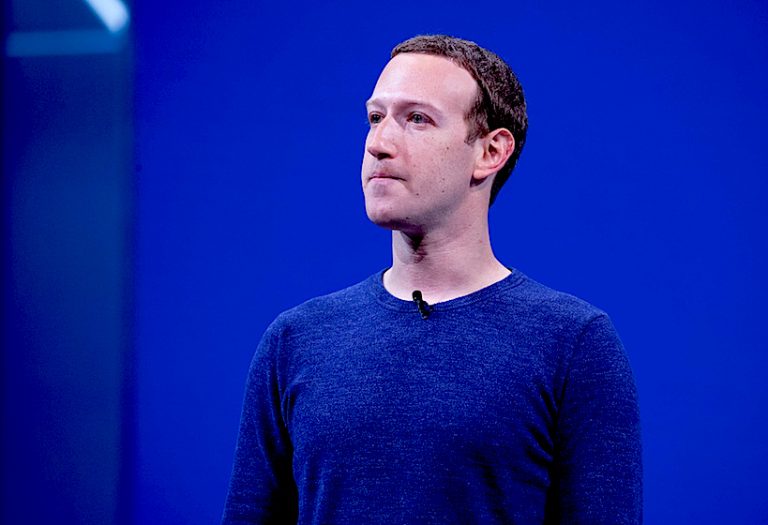 AI
AI
 AI
AI
 AI
AI
Meta Platforms Inc. has joined Elon Musk in his efforts to derail OpenAI’s plans to convert itself into a for-profit company.
On Friday, the Wall Street Journal reported that Meta had penned a letter to California Attorney General Rob Bonta, arguing that by allowing the artificial intelligence firm to become a for-profit company, it would “set a dangerous precedent,” enabling other startups to enjoy the benefits of being a nonprofit organization until they become profitable.
In its letter, Meta wrote that OpenAI’s conduct would have “seismic implications” for the industry.
“If OpenAI’s new business model is valid, non-profit investors would get the same for-profit upside as those who invest the conventional way in for-profit companies while also benefiting from tax write-offs bestowed by the government,” Meta wrote.
OpenAI has previously said its transition plans would see it continue to maintain a nonprofit arm, which would receive the full value from its ownership stake in the new for-profit entity, and emerge with “enhanced ability to pursue its mission,” which is to ensure AI benefits humanity.
Meta is a major competitor to OpenAI, having spent billions of dollars developing rival large language models such as Llama 3, which competes with the likes of GPT-4o. In addition, OpenAI is closely associated with two of Meta’s major rivals, Microsoft Corp. and Apple Inc. The former is OpenAI’s biggest investor, while the latter has tightly integrated its models within its Apple Intelligence AI features.
The letter from Meta comes after Space Exploration Technologies Corp. and Tesla Inc. founder Elon Musk filed an injunction against OpenAI earlier this month, asking a judge to block its transition to a for-profit company.
Musk, who also competes against OpenAI through his AI startup xAI Corp., has made a number of legal challenges against the company, accusing it of betraying its nonprofit mission in pursuit of investor profits.
Meta, in its letter, said it supports the efforts of Musk and Shivon Zillis, a business associate of the xAI founder, who claim they are representing the interests of the public in attempting to stop OpenAI going ahead with its transition.
“Although we ask your office to take direct action, we believe that Mr. Musk and Ms. Zilis are qualified and well-positioned to represent the interests of Californians in this matter,” Meta wrote.
The alliance between Musk and Meta Chief Executive Mark Zuckerberg (pictured) is an unlikely one, as the two entrepreneurs have themselves butted heads in the past, and at one stage even agreed to battle it out in a cage fight, though that bout never occurred.
Holger Mueller of Constellation Research Inc. said Zuckerberg’s decision to join Musk in trying to derail OpenAI’s ambitions is a case of the old adage that “the enemy of my enemy is a friend”, as both men have a vested interest in holding the company back.
“Every company should be free to change its operating form as needed, but the special status of being a nonprofit can give startups an advantage, especially in terms of how they attract investors,” the analyst said. “So this is an important lawsuit, both for investors and other AI startups, as the outcome will likely have an impact on how other companies structure themselves in future.”
Meta’s and Musk’s complaints come after OpenAI closed on a $6.6 billion round of funding that brought its total value to $157 billion. At the time of that round, OpenAI told investors they could take their money back if it doesn’t succeed in its bid to become a for-profit company within two years.
The company has attempted to fight back, and last week released a series of internal documents that allegedly show Musk himself had previously pushed for it to become a for-profit entity.
Musk has previously claimed he was misled that OpenAI would be purely nonprofit when he first invested in it. However, the documents reportedly show that Musk wanted the company to change its legal structure. In 2017, they reveal that he instructed his wealth manager to create a public-benefit corporation called Open Artificial Intelligence Technologies Inc. in Delaware. Two days prior to that move, Musk said in an email to OpenAI’s co-founder Ilya Sutskever that it should adopt a for-profit structure and that he should “unequivocally have initial control of the company.”
Meanwhile, other documents show a series of email correspondence between Musk and OpenAI’s co-founders dated back to 2018, in which they discuss creating a for-profit entity. In the documents, Musk allegedly proposed a structure that would give him majority ownership of the company.
The authenticity of those documents has not been verified. Musk cut ties with the company later that year, after OpenAI’s co-founders rejected a proposed merger with Tesla.
Support our mission to keep content open and free by engaging with theCUBE community. Join theCUBE’s Alumni Trust Network, where technology leaders connect, share intelligence and create opportunities.
Founded by tech visionaries John Furrier and Dave Vellante, SiliconANGLE Media has built a dynamic ecosystem of industry-leading digital media brands that reach 15+ million elite tech professionals. Our new proprietary theCUBE AI Video Cloud is breaking ground in audience interaction, leveraging theCUBEai.com neural network to help technology companies make data-driven decisions and stay at the forefront of industry conversations.